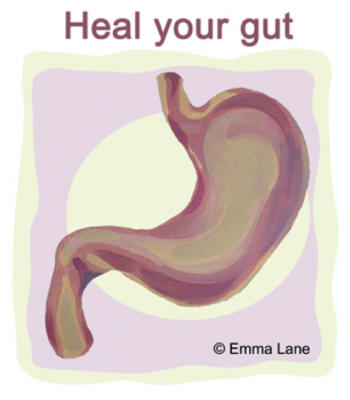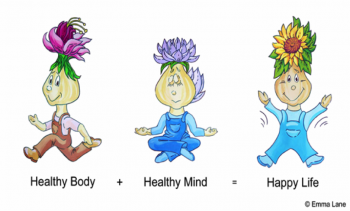Digestion and its link to female hormones
In general people are unaware that their digestive system function has any connection or effect on their hormonal system. But any type of inflammation in the digestive system will lead to increased production of cortisol, an anti-inflammatory hormone.
Inflammation can damage the intestinal lining, impairing absorption of the biochemicals that are the raw ingredients for producing steroid hormones such as cortisol, oestrogen, and progesterone, so that the body may be challenged in its production of these hormones. Increased demand from inflammation and decreased supply from poor absorption will combine to create a hormone imbalance.
For your nutrient consumption to represent nutrient uptake to your body’s cells, tissues, and organs, your digestive organs need to be working stress-free with no inflammation, fungus, parasites and/or other chemical and physical variables. When you don’t have optimal digestion, your body is starving because of poor nutrient extraction.
Gas, bloating and slow digestion are common hormonal problems that aren’t usually associated with hormonal imbalances, but may be associated with eating bad foods, not chewing your food and eating too much.
In summary:
- Digestion plays an important role in determining overall nutritional status and health.
- Hormones are made from the food you eat.
- The best food intake lacks potential for wellbeing and hormonal balance if digestive function is sub-optimal.
- Poor digestion and assimilation of food can lead to malabsorption-induced ill health.
- Imbalance in the gastrointestinal system has implications that extend far beyond digestive symptoms.
Key points to support and balance digestion and female hormones:
- Reduce and manage stress
- Create good cephalic response
- Optimise digestive secretions
- Eat a broad variety of foods
- Support liver function
- Maintain blood sugar balance
- Support your good bacteria

Lack of absorption of certain vitamins and minerals is associated with PMS symptoms.
Low magnesium is associated with pre-menstrual fluid retention, nausea, apathy, tiredness, muscle cramps, mood swings and craving chocolate. Depression during the period is often a sign of magnesium deficiency.
Vitamin A deficiency has been associated with increased oestrogen levels, which in turn affects the balance of oestrogen to progesterone levels. Insufficient levels of vitamin B6 is associated with an excess of oestrogen in relation to progesterone. This is important because vitamin B6 improves hepatic clearance of oestrogen.
Breast tenderness associated with the menstrual cycle indicates the liver needs help because it is failing to inactivate excess levels of oestrogen because of a deficiency of B vitamins.
Deficiency in EFA’s is also associated with many PMS symptoms such as irritability, fluid retention, fatigue, heavy periods, and headaches.
Common intestinal imbalance signs to be watchful for:
- Bloating, belching, burning and flatulence
- Diarrhoea / constipation
- Undigested food in stool / foul smelling stools
- Mineral deficiencies – iron, zinc etc.
- Food intolerances
- Nausea after taking nutritional / herbal supplements
- Post-adolescent acne
- Weak, peeling, ridged or cracked fingernails
- Dilated capillaries in the cheeks and nose
- Amenorrhea (absence of menstruation)
- Fat soluble vitamin deficiency signs
Plus… secondary haemorrhoids or fissures, inflammatory soft tissue or joint problems, rough ‘chicken skin’ on upper arms and thighs, dandruff, dry brittle hair, dry skin.
To learn more about the healthy digestion process and what can go wrong, look out for our next blog Hormone imbalance and digestion dysfunction.
To understand the far reaching effects of digestion check out Emma Lane’s comprehensive course Holistic Approaches to a Fully Functional Gut. The next course will run on 2nd & 3rd June in Wakefield, West Yorkshire.

Courses
Mission Statement
Our vision is that health practitioners can develop the skills and knowledge to employ a variety of practical methodologies that safely bridge the gap between conventional Western medicine and holistic healthcare practices.
Through our training courses we aim to give practitioners, whatever their approach to health and wellbeing, the knowledge, skills and tools that will enable them to deliver the best possible approaches to resolve their patients or client’s health challenges.
© Integrative Health Education 2014-2024 | Terms & Conditions | Privacy Policy
